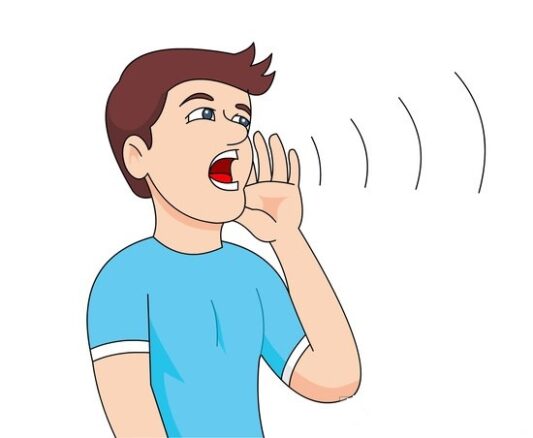All Services
- Aphasia
- ASSR Hearing Test
- Attention-Deficit Hyperactive Disorder (ADHD)
- Autism Spectrum Disorder (ASD)
- BERA Hearing Test
- Dysarthria
- English Series
- Feeding and swallowing disorders in Children
- Fluency Therapy
- Hearing Test
- Hindi Series
- Language Therapy
- OAE Hearing Test
- Oral Cancer
- PTA Hearing Test
- Speech and Language Developmental Delay (SLDD)
- Speech Sound Disorder
- Speech Therapy
- Speech Therapy Classes
- Stammering
- Stammering
- Swallowing disorders in Adults
- Treatment for Cleft Lip and Palate
- Voice Disorders
- Voice Therapy
- Voice Therapy
Voice Disorders

Voice disorders encompass a range of conditions where an individual’s voice quality, pitch, and volume deviate from what is considered appropriate for their age, gender, cultural background, or geographic location. Even when these deviations may not be readily apparent to others, a voice disorder is recognized when an individual expresses distress over having an unusual voice that doesn’t meet their daily communication needs. In this context, we’ll delve into the various categories of voice disorders, as follows:
- Organic Voice Disorders: These are physiological voice disorders resulting from changes in the respiratory, laryngeal, or vocal tract mechanisms. They may stem from structural issues such as alterations in vocal fold tissues (e.g., edema or vocal nodules) or structural laryngeal changes due to aging.
- Neurogenic Voice Disorders: These organic voice disorders originate from problems with the central or peripheral nervous system innervation to the larynx, impacting vocal mechanism function. Conditions in this category include vocal tremor, spasmodic dysphonia, or vocal fold paralysis.
- Functional Voice Disorders: These voice disorders occur due to inefficient use of the vocal mechanism when the physical structure remains normal. They encompass conditions like vocal fatigue, muscle tension dysphonia or aphonia, diplophonia, or ventricular phonation.
- Psychogenic Voice Disorders: Occasionally, psychological stressors can lead to habitual and maladaptive aphonia or dysphonia, affecting voice quality. These are referred to as psychogenic voice disorders or psychogenic conversion aphonia/dysphonia. While relatively rare, individuals showing signs of psychogenic voice disorders may be referred by speech-language pathologists (SLPs) to other appropriate professionals like psychologists or psychiatrists for diagnosis and potential collaboration in subsequent behavioral treatment.
For effective treatment of voice disorders, including the treatment of organic voice disorders and voice disorders treatment in New Delhi, it’s vital to consult with experienced voice disorders speech therapists. They can provide the expertise and therapies needed to address the specific nature of the voice disorder and help individuals regain their vocal confidence and functionality.
Voice Disorders – Diagnosis and Treatment Options
If the sound of your voice is harsh, choppy, weak, breathy, too high, or too low, then you may have a voice disorder. In case, you suspect you might have a voice disorder, then consult an ENT specialist. They may use specific tests to examine your vocal cords and larynx. This may include:
- Laryngoscopy
- Laryngeal EMG (Electromyography)
- Stroboscopy
- Imaging tests
After determining the underlying cause of your voice disorder, the medical practitioners will follow the appropriate treatment. Some effective voice disorder treatments include the following
- Lifestyle changes
- Voice and Speech Therapy
- Surgery
- Medicines
- Injections
The Role of Speech Therapists in Voice Disorder Treatment
Speech therapists work closely with patients to identify and cure problems that cause voice disorders. Mainly, after detailed assessments, they will provide customized voice therapy strategies to fix specific impaired areas. In general, speech therapists use a variety of methods such as stretches, exercises, and behavioral changes to enhance vocal quality, pitch, and loudness. Furthermore, they instruct patients on good posture, breathing, and vocal hygiene. Overall, speech therapists help people with voice disorders regain confidence and live better by teaching them the skills and methods needed for efficient communication.
Personalized Voice Disorder Treatment in New Delhi
Are you seeking voice disorder treatment near me in New Delhi? Would you like to take voice therapy from a top speech therapist in New Delhi? If yes, then book an appointment at Asha Speech & Hearing Clinic. Our team contains certified speech therapists with several years of experience in providing individualized speech therapy and voice therapy services for those who struggle with voice disorders. Don’t let voice problems hold you back any longer. With the assistance of our specialists, find your voice again and improve your communication.
Providing Collaborative Care with Leading Hospitals






